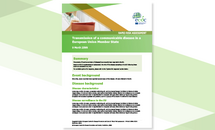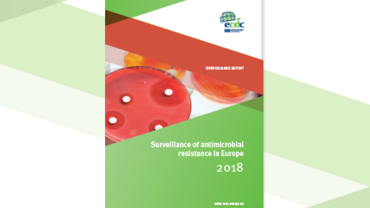Rapid risk assessment: Outbreak of carbapenemase-producing Enterobacterales in Lithuania, 2019
Between 1st February and 26th November 2019, 199 cases of Klebsiella pneumoniae carbapenemase (KPC)-producing carbapenem-resistant Enterobacterales (KPC-CRE) have been detected in Lithuania. The majority of cases (186) occurred in one single hospital. This represents a large increase compared to the total number of cases for the whole country in previous years: 5 and 12 cases of carbapenem-resistant Enterobacterales (CRE) in Lithuania in 2017 and 2018, respectively. Whole genome sequencing results are not yet available.
Executive summary
The risk of further spread of CRE in the most affected hospital is high, as a large number of cases have been identified from multiple wards and new cases continue to be detected. While enhanced infection control measures have been implemented, the outbreak appears not yet to have been controlled. The risk of further spread in the Lithuanian healthcare system is also high, as screening for carriage of CRE was not in place in Lithuanian hospitals before December 2019, except for the hospital mostly affected by the outbreak. Six other hospitals in the country have reported the detection of KPC-producing CRE, however, it is currently unclear how all these cases are related.
By contrast, the risk of transmission for individuals outside healthcare settings is low. There is no evidence so far for cross-border transmission related to transfer of patients with CRE from the hospital affected by the outbreak to healthcare facilities in other countries. Further epidemiological investigations are ongoing and molecular typing is planned with ECDC support.
This outbreak highlights the high transmissibility of CRE, and in particular KPC-producing K. pneumoniae in hospitals and other healthcare settings. Early detection of outbreaks and close cooperation between healthcare units, clinicians and public health services are crucial to control the spread in the hospitalised patient population. Moreover, this outbreak highlights the importance of early detection of CRE also in countries and settings with low incidence. To improve early detection and control, there is a need for increased laboratory capacity in the European Union/European Economic Area to support outbreak investigations and surveillance with real-time whole genome sequencing to identify transmission chains and high-risk clones, and for healthcare facilities to implement enhanced control measures in order to avoid further spread of CRE.
The risk assessment lists a range of control measures to be considered for an enhanced response to this outbreak.







